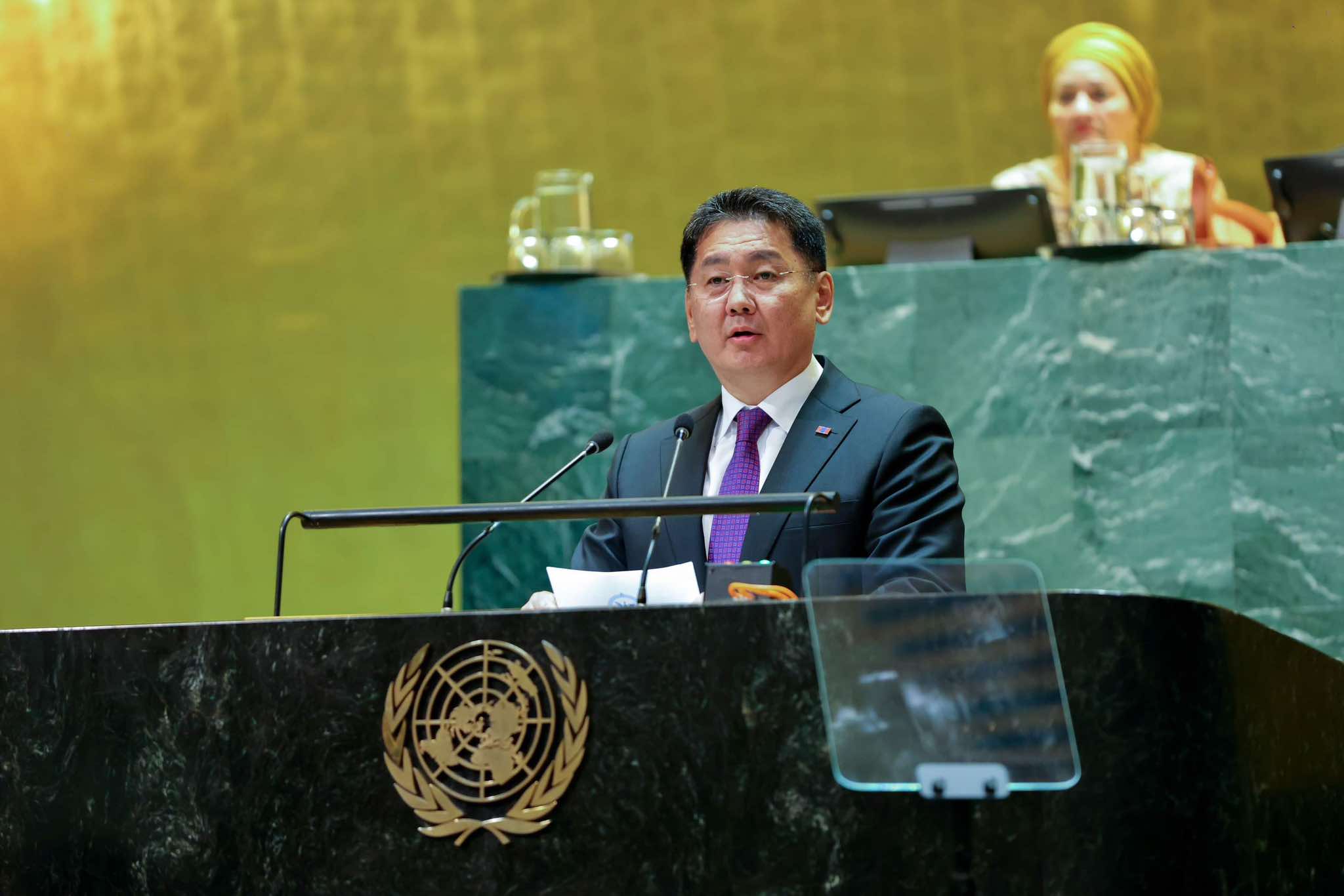UN General Assembly Adopts Draft Resolution on “World Horse Day”
The 79th Session of the United Nations General Assembly discussed and adopted the draft Resolution on proclaiming July 11 ‘World Horse Day,” initiated by President of Mongolia Khurelsukh Ukhnaa, on June 3, 2025.
Co-sponsors of the draft Resolution were 56 countries including the Republic of Austria, the Kingdom of Bahrain, the Federative Republic of Brazil, the Republic of Korea, the People’s Republic of China, the Bolivarian Republic of Venezuela, the State of Qatar, the Kingdom of Lesotho, the Kingdom of Morocco, the Russian Federation, the Portuguese Republic, the Federal Republic of Germany, the Kingdom of Thailand, the Republic of Türkiye, Japan, and five countries in Central Asia.
At present there are over 57 million horses in the world, and in many countries the horse industry plays an important role in the socioeconomic development and well-being of people and the promotion of equine welfare and specifically contributes to the daily lives and economic empowerment of the rural population and local communities through riding, transportation, horse racing, equestrian sports, tourism and recreational activities, as well as employment generation, food production and other businesses.
However, the number of horses and the equine industry are declining worldwide to some extent due to changes in lifestyles, pressure on the
industry from economic fluctuations, climate change, and environmental and other factors.
In light of this, as a representation of the nomadic peoples, who have preserved their equestrian cultures and traditions from ancient times, President of Mongolia Khurelsukh Ukhnaa initiated the draft Resolution at the General Assembly to proclaim July 11 of each year as “World Horse Day.” The purpose of this initiative is to raise international awareness, promote the significance of horses, and encourage public engagement in their preservation.
Introducing the draft Resolution, Mr. Ankhbayar Nyamdorj, Permanent Representative of Mongolia to the United Nations, described the horse as “one of the most important animals in human history” and pointed to its role in transportation, agriculture, farming, and mining, as well as recreational fields such as horse-racing and tourism. The text aims to encourage concrete actions to support the equine industry and conserve horse cultural heritage.


